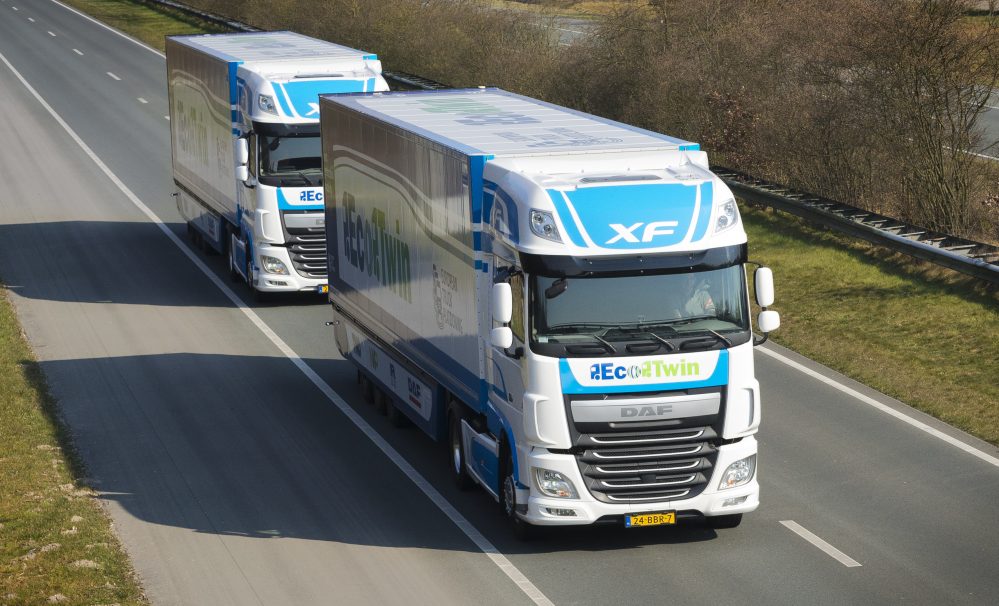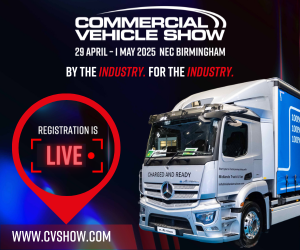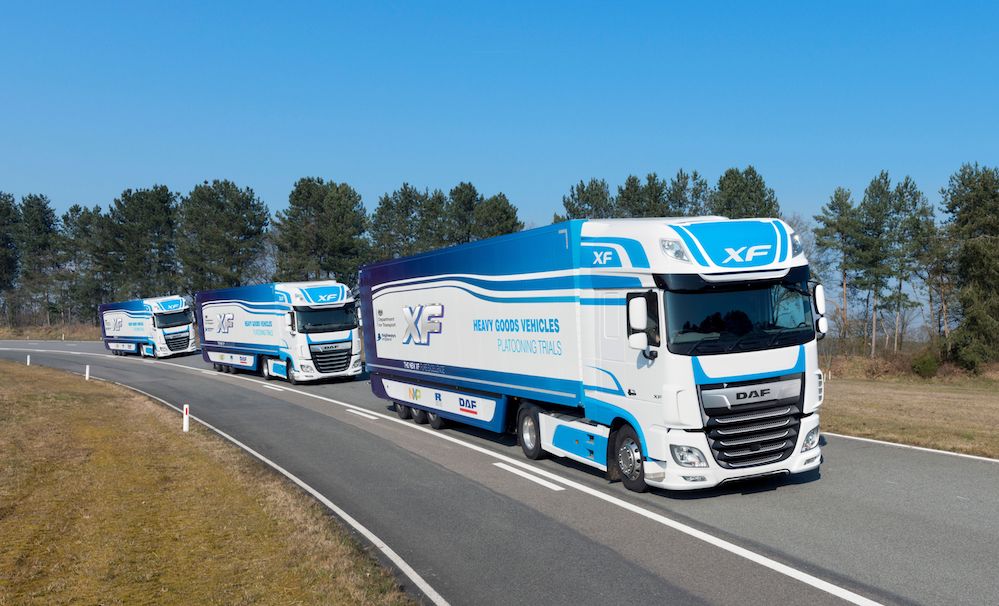The Department for Transport (DfT) and Highways England has commissioned TRL, the global centre of innovation in transport and mobility, to lead the first real-world operational trial of platooning vehicles on UK roads.
The £8.1m trial will see TRL lead a consortium of partners including DAF Trucks, the UK market leader of heavy goods vehicle (HGV) sales, Ricardo, who worked with TRL to deliver the HGV Platooning feasibility study for the DfT in 2014 and DHL, the global market leader in the logistics industry.
Applying experience gained in platooning projects in Europe and the USA, the project will collect information and independently evaluate heavy vehicle platooning under real-world operational conditions. Trials will be tailored to the unique requirements of UK roads and will collate the evidence required to understand issues such as fuel efficiency and reduced emissions, safety, acceptance by drivers and other road users, implications for future infrastructure, and the commercial case for adoption.
Rob Wallis, Chief Executive, TRL commented: “The UK has an unprecedented opportunity to lead the world in trialling connected vehicle platoons in a real-world environment. TRL and its consortium of leading international partners, have the practical and technical knowledge gained from previous projects to understand what is required to put a connected vehicle platoon on to UK roads safely. The team are now taking that expertise and uniquely applying it within live traffic operations.”
Richard Cuerden, Academy Director at TRL added: “Platooning technology has the potential to deliver a wide range of benefits to all road users. As well as supporting the Department for Transport and Highways England in informing future infrastructure investments and policy decisions, the trials will highlight the services that platooning may offer road users and whether these can safely contribute to a reduction in vehicle emissions, improved journeys and greater economic prosperity.”
Transport Minister Paul Maynard said: “We are investing in technology that will improve people’s lives. Advances such as lorry platooning could benefit businesses through cheaper fuel bills and other road users thanks to lower emissions and less congestion. But first we must make sure the technology is safe and works well on our roads, and that’s why we are investing in these trials.”
Jim O’Sullivan, Highways England Chief Executive, said: “We are pleased to be supporting the Government’s ambition for the UK to be a global leader for innovation. The trial has the potential to demonstrate how greater automation of vehicles – in this instance, HGVs – can deliver improvements in safety, better journeys for road users and reduction in vehicle emissions. Investing in this research shows we care about those using our roads, the economy and the environment, and safety will be integral as we take forward this work with TRL.”
The on-road trials will form part of regular DHL logistical operations and are expected to take place in 2018, following the successful completion of a rigorous programme of driving simulations, driver training and test track trials over the coming months.
The HGV Platooning project adds to TRL’s growing programme of innovation into future transport and mobility solutions, focused on (i) highly-automated, self-driving vehicles, (ii) intelligent, connected infrastructure and vehicles, (iii) low carbon technologies and electrification and (iv) shared mobility services. Today TRL, together with its partners, has an active portfolio of autonomous, connected, electric and shared mobility projects totalling in excess of £50m. These include GATEway, MOVE_UK, Atlas, Driven, Streetwise and DRAGON.
What is platooning?
Platooning involves two or more vehicles connected with ‘vehicle to-vehicle communication’, allowing them to effectively communicate with each other and operate as a single unit. The lead vehicle takes control of the speed and direction of all the vehicles in the platoon, when the lead vehicle brakes the following vehicles automatically brake with zero reaction time significantly increasing road safety. The constant controlled speed delivers fuel savings and environmental benefits through the reduction of CO2 emissions, whilst the ability to decrease the distance between vehicles increases road network capacity.






